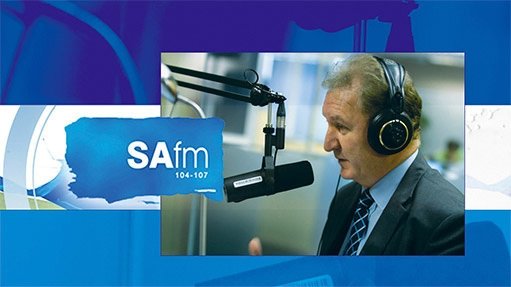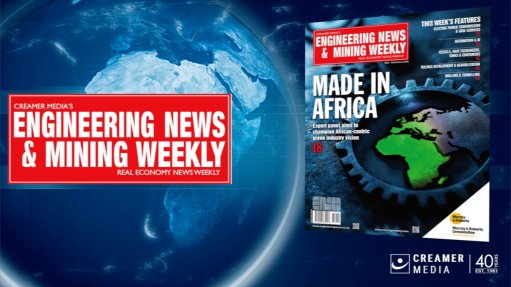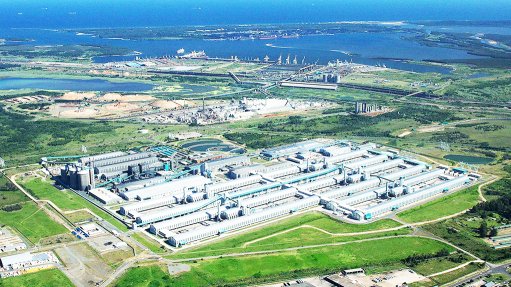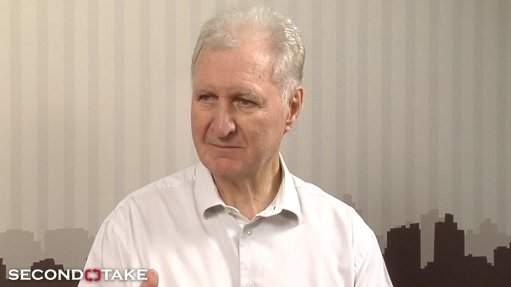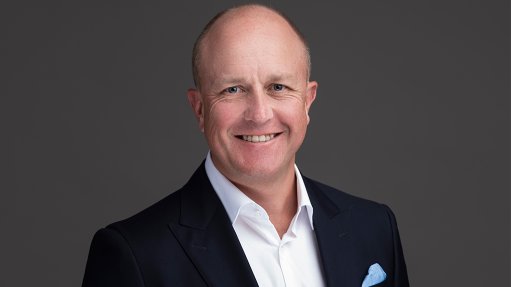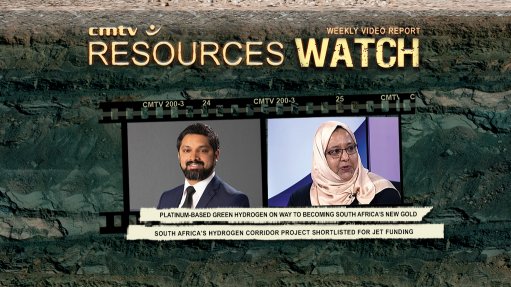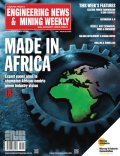ESG implementation improves in African mining

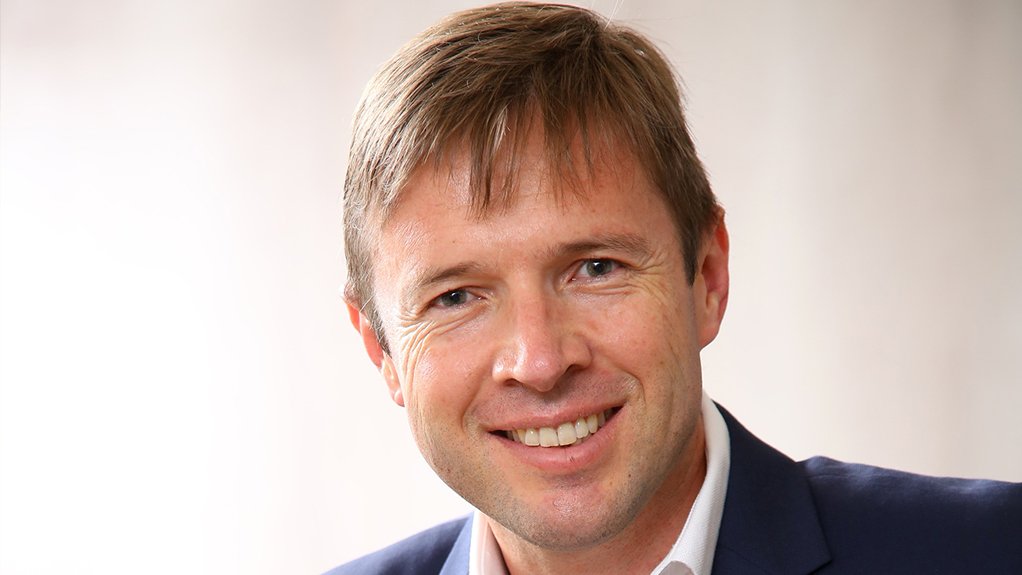
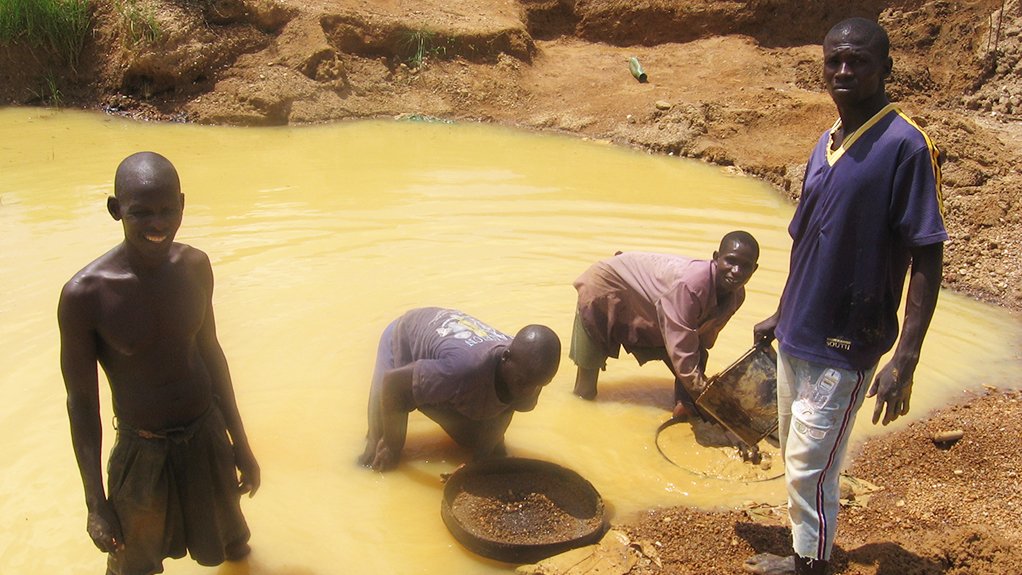
ANDREW VAN ZYL There is growing pressure from investors for mines to contribute to broad imperatives such as climate change
PEOPLE AND MINING The increased focus on ESG has resulted in greater concern about the upholding of human rights, which mines must show they prioritise in their operations
As environmental, social and corporate governance (ESG) reporting improves, so does the implementation of the resulting policies across the African mining industry, consulting engineer and scientist firm SRK Consulting director and principal consultant Andrew van Zyl tells Mining Weekly.
He says that, although most mining companies operating in Africa, especially the larger companies, have had ESG on their agendas for some time, there is now more progress with regard to embedding ESG policies into their operations.
“The growing focus on ESG has also resulted in companies’ addressing a wider range of issues, extending to artisanal mining and responsible sourcing,” he explains.
SRK Consulting partner and principal environmental consultant Darryll Kilian adds that mining companies are now giving ESG more prominence, reporting on their ESG performance in greater detail than before.
“In the past, there may also have been a gap between head office policy, including commitments on environmental and social issues, and what the mines implemented on the ground.”
He adds that, in recent years, more attention has been paid to the implementation of ESG strategies and initiatives as investors increasingly apply these nonfinancial factors as part of their analysis process to identify material risks and growth opportunities.
“There is certainly more attention being paid at a departmental level within companies to understand and apply ESG policies, which tend to be developed at corporate level – and often in a different country from where the mine is located,” SRK Consulting partner and principal scientist Wouter Jordaan explains.
He says investors and lenders increasingly require mines to assess their performance against global best practice in ESG because the legislative frameworks on ESG in many African countries are still considered insufficient.
“Mines relying on the large, international financial institutions for capital have, therefore, already aligned their ESG policies with benchmarks, such as the International Finance Corporation’s (IFC’s) performance standards,” Jordaan explains.
The IFC’s performance standards, last updated in 2012, comprise eight categories used to measure ESG performance. These categories are: the assessment and management of environmental and social risks and impacts; labour and working conditions; resource efficiency and pollution prevention; community health, safety and security; land acquisition and involuntary resettlement; biodiversity conservation and sustainable management of living natural resources; indigenous peoples; and cultural heritage.
Another ESG benchmark widely applied in African mining is that of the Equator Principles, which is a risk management framework adopted by financial institutions for determining, assessing and managing environmental and social risk in projects. It is primarily intended to provide a minimum standard for due diligence and monitoring to support responsible risk decision-making.
“Any mining company looking to attract investment from global institutional players will certainly need to align their policies with environmental and social sustainability requirements outlined in the Equator Principles or other international standards,” Kilian states.
He warns that financial stakeholders will closely monitor the way in which the mines apply these policies in daily practice.
Investor Pressure
In addition to scrutinising how mines affect their local environments and communities, there is also growing pressure from investors for mines to contribute to far broader imperatives such as climate change.
“This has already been seen in the raised levels of opposition to coal mining, but will similarly also affect the sources of energy that mines choose to use in powering their operations,” Van Zyl comments.
A swathe of mines in Africa have invested in the implementation of hybrid energy by supplementing their energy demand with renewable sources, thereby reducing their carbon footprint.
In African countries, such as the Democratic Republic of Congo (DRC), growing ESG pressure is being exerted by not only investors but also mining customers – all of whom want to be assured that the minerals they are buying are being produced as sustainably and ethically as possible.
SRK Consulting DRC country manager and mining engineer Susa Maleba says the focus on ESG in the African mining sector has been heightened by pressure from nongovernmental organisations and the media, who are exposing these issues and how they are addressed by mines.
“The widespread adoption of social media platforms has enhanced the power of the ESG message,” he explains.
Moreover, the increased focus on ESG has also resulted in greater concern about the upholding of human rights, which mines must show they prioritise in their operations.
“Investors will want to see these mines making a positive contribution to human rights in their areas of operation. In this sense, ESG provides valuable tools for mining companies in this region to attract the capital they need for project development.”
Maleba notes that African countries can benefit significantly from the lessons that SRK Consulting has learned from its projects globally.
“We have local experts on the ground who understand local conditions and can generate relevant, sustainable solutions,” he concludes.
Comments
Press Office
Announcements
What's On
Subscribe to improve your user experience...
Option 1 (equivalent of R125 a month):
Receive a weekly copy of Creamer Media's Engineering News & Mining Weekly magazine
(print copy for those in South Africa and e-magazine for those outside of South Africa)
Receive daily email newsletters
Access to full search results
Access archive of magazine back copies
Access to Projects in Progress
Access to ONE Research Report of your choice in PDF format
Option 2 (equivalent of R375 a month):
All benefits from Option 1
PLUS
Access to Creamer Media's Research Channel Africa for ALL Research Reports, in PDF format, on various industrial and mining sectors
including Electricity; Water; Energy Transition; Hydrogen; Roads, Rail and Ports; Coal; Gold; Platinum; Battery Metals; etc.
Already a subscriber?
Forgotten your password?
Receive weekly copy of Creamer Media's Engineering News & Mining Weekly magazine (print copy for those in South Africa and e-magazine for those outside of South Africa)
➕
Recieve daily email newsletters
➕
Access to full search results
➕
Access archive of magazine back copies
➕
Access to Projects in Progress
➕
Access to ONE Research Report of your choice in PDF format
RESEARCH CHANNEL AFRICA
R4500 (equivalent of R375 a month)
SUBSCRIBEAll benefits from Option 1
➕
Access to Creamer Media's Research Channel Africa for ALL Research Reports on various industrial and mining sectors, in PDF format, including on:
Electricity
➕
Water
➕
Energy Transition
➕
Hydrogen
➕
Roads, Rail and Ports
➕
Coal
➕
Gold
➕
Platinum
➕
Battery Metals
➕
etc.
Receive all benefits from Option 1 or Option 2 delivered to numerous people at your company
➕
Multiple User names and Passwords for simultaneous log-ins
➕
Intranet integration access to all in your organisation









